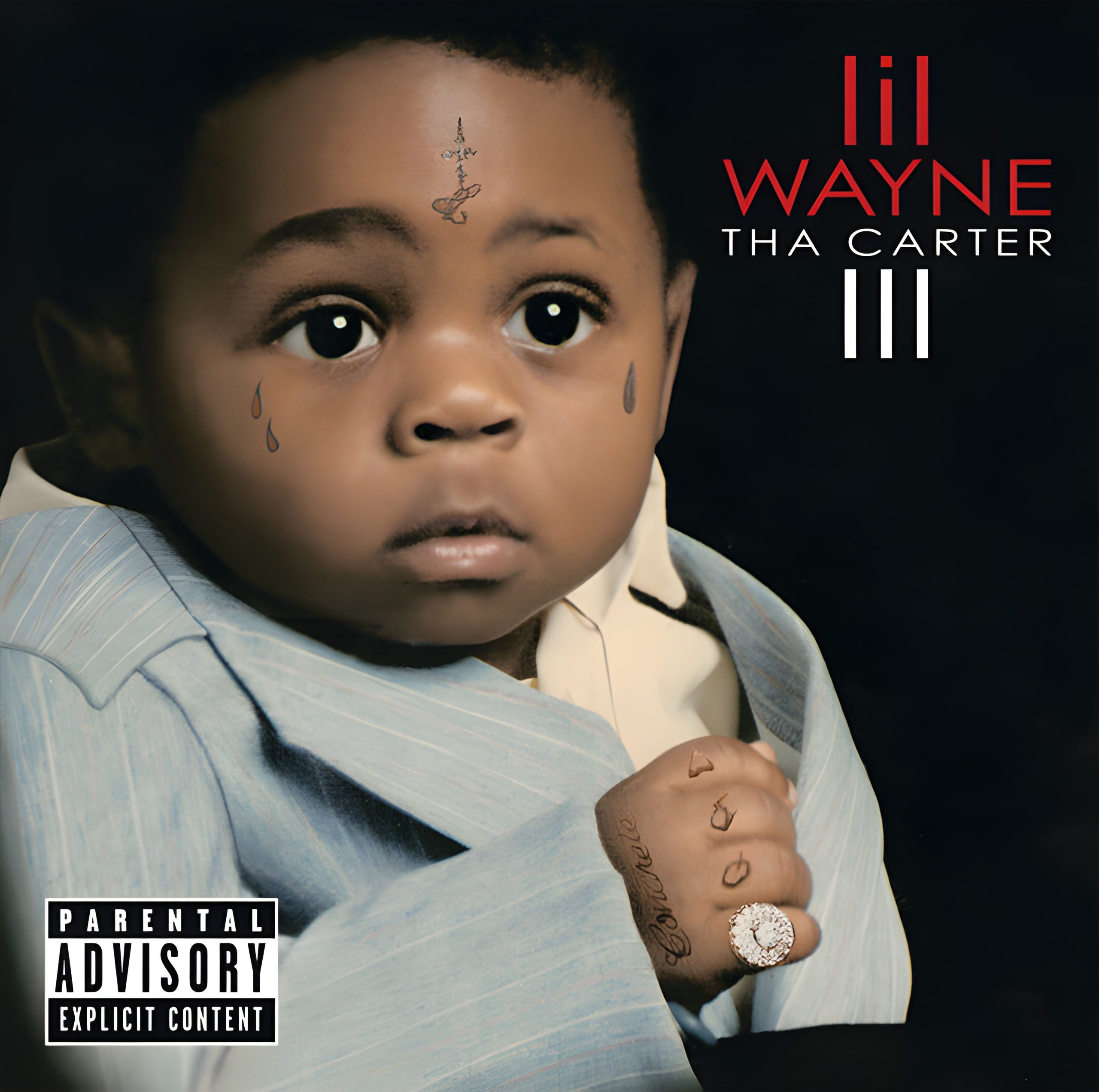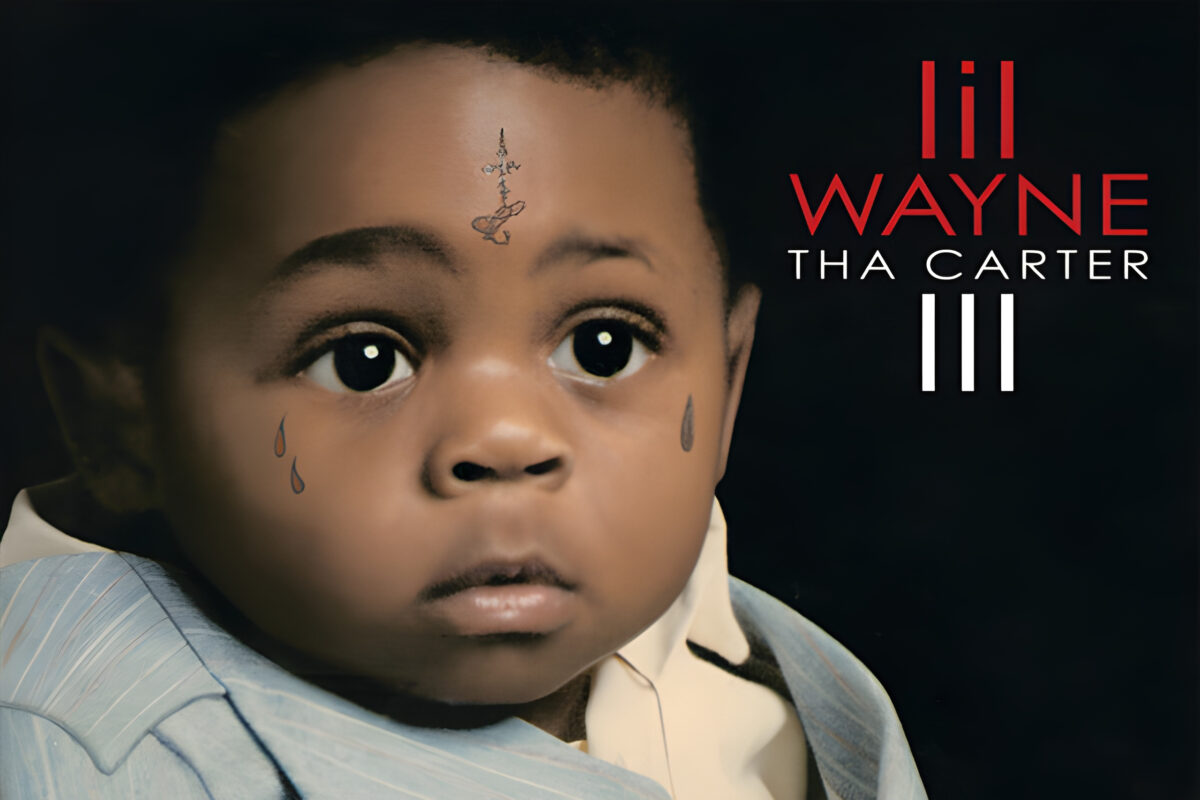Released: 2008
“Mr. Carter” by Lil Wayne featuring JAY-Z is an anthem celebrating the artists’ accomplishments and longevity in the hip-hop industry. It conveys themes of perseverance, dominance, and legacy, showcasing both artists reflecting on their careers and addressing the expectations placed upon them. The track emphasizes the resilience and growth they’ve experienced over time, demonstrating their prowess in the genre.
The hook, repeated throughout the song, sees Lil Wayne personifying ‘Mr. Carter,’ addressing himself while answering a hypothetical query about his whereabouts and career trajectory. The recurring question “Where have you been?” underscores the anticipation and intrigue surrounding Wayne’s status and return, with a subtle nod to the pressure to maintain relevance in a constantly evolving industry.
Wayne’s opening verse immediately sets the tone by making it clear that he feels “big,” not in physical stature but in influence and reach. He plays with the metaphor of seasons, portraying himself as a force of nature—hotter than the sun in the summer and colder than winter—underscoring his unparalleled standing. Wayne’s clever use of wordplay and double entendres establishes his linguistic agility, while simultaneously sending a clear message to detractors that their negativity won’t hinder his progress.

The repetition of “I am him” in the chorus further cements Wayne’s self-affirmation and assertion of identity, where he reclaims his place in the hip-hop world. This chorus line bridges his initial introduction and leads listeners into his perspective, suggesting both his humility and confidence as he revisits the global recognition of his name.
Wayne continues in his subsequent verse to emphasize his relentless work ethic, boasting about his ability to continue innovating while others remain stagnant. He ridicules his competitors by equating them to ‘April babies,’ an insinuation that they are foolish or naive, while his automotive references (like “red-and-yellow thing, old school Atlanta Hawk”) highlight both his success and taste for classic luxury.
JAY-Z’s entrance marks a pivotal shift in the song, complementing Wayne’s perspective with his own tales of triumph and grit. He frames himself as a ‘Roc Boy’ with substantial influence and experience. Hov’s references to “Euros” and “change from the rap game” cleverly symbolize his international success and monetary gains. His appearance amplifies the song’s theme of dynastic success in hip-hop, aligning himself with greats like Biggie and Tupac, reinforcing his iconic status.
JAY-Z further plays on words with lines like “show no mercy to Murcielago,” indicating his ability to conquer challenges as easily as a luxury car navigates the road. This idea encapsulates his life’s journey from his origins in Marcy to achieving a place among rap legends, with the sense that his story, filled with determination and tenacity, sets him apart.
The dialogue in “Mr. Carter” doesn’t shy away from existential musings, with JAY-Z acknowledging his influential presence and foreshadowing a lasting legacy beyond his own lifetime. By including historical figures like Marcus Garvey, Hov ties his story into a larger narrative of black excellence and empowerment, further cementing the song as an anthem of personal and collective triumph.
Lil Wayne closes with a fierce commitment to authenticity and defiance in the face of adversity. He swears that his departure from the world will be on his terms, symbolically maintaining strength (‘on both feet, never knees in the dirt’), suggesting that no challenge will undermine his stature or legacy. This promise, both poignant and forceful, brings the narrative full circle as it began with his unwavering assertion of dominance.
Ultimately, “Mr. Carter” serves as a testament to Lil Wayne and JAY-Z’s legacies within hip-hop, depicting their struggles, successes, and resolve. Their respective stories are woven together through verses that pay homage to the journey they’ve undertaken and the artistic space they have defined. The track, released in 2008 on Lil Wayne’s critically acclaimed album ‘Tha Carter III,’ stands as a celebration of not just two monumental careers but also the broader scope of hip-hop’s cultural impact.








